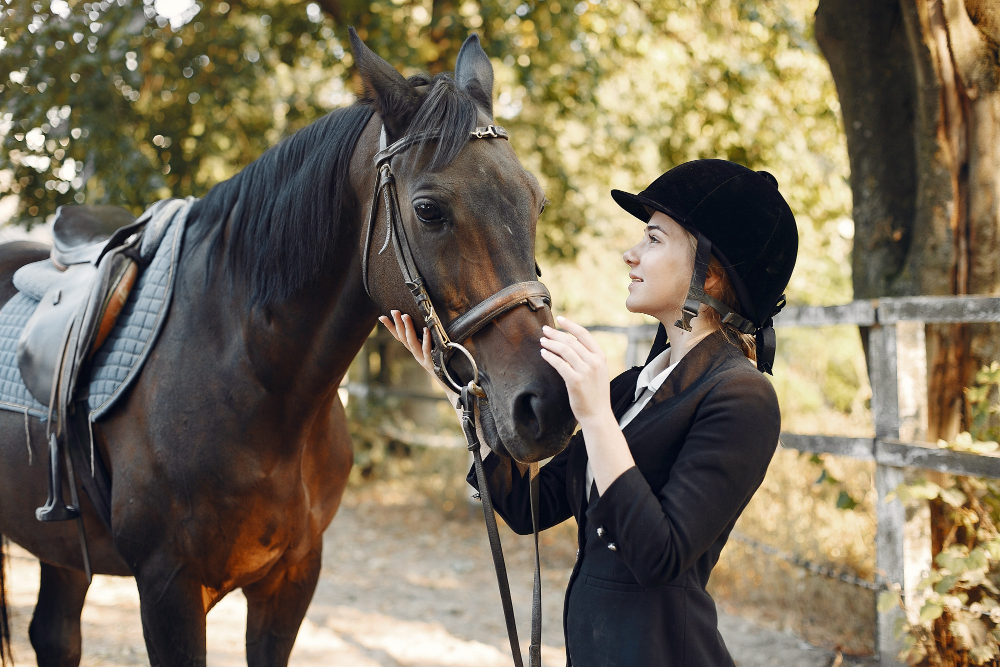It combines academic knowledge with practical skills and is ideal for students passionate about equine welfare, sports science, breeding, behaviour, or equestrian business. UK universities and specialist colleges offer a wide range of equine-related courses, from general Equine Science to focused degrees in Performance, Therapy, Business, or Veterinary Support.
Entry Requirements
Equine Studies degrees are accessible to a broad range of students and are available as full BSc or BA degrees, as well as foundation degrees and HNDs.
Typical A-Level Requirements
-
Between CCC and ABB depending on the course
-
Biology is often preferred or required for science-focused courses
-
Other useful subjects: Chemistry, Physical Education, Psychology, Animal Management, Business Studies
Alternative Qualifications
-
BTECs in Horse Management, Animal Science, or Agricultural Studies
-
Access to HE Diplomas (Land-based or Biological Sciences)
-
T Levels in Animal Care and Management
-
Scottish Highers, Irish Leaving Certificate, or International Baccalaureate
Equine-related work experience is highly valued. This may include working at riding schools, livery yards, stud farms, rehabilitation centres, or event yards. Riding ability is often beneficial but not always required unless the course includes performance or coaching components.
Course Structure
Equine Studies degrees in the UK typically last three years full-time or four years with a placement year. Foundation degrees and HNDs take two years and can often be ‘topped up’ to a full honours degree. Course titles vary and include:
-
BSc Equine Science
-
BSc Equine Sports Performance
-
BSc Equine Therapy and Rehabilitation
-
BSc Equine Behaviour and Welfare
-
BA Equine Business Management
-
BSc Applied Equine Studies
Modules may cover:
-
Equine anatomy and physiology
-
Nutrition and health management
-
Equine biomechanics and performance
-
Behaviour and psychology
-
Breeding and genetics
-
Rehabilitation and therapy techniques
-
Business management and event planning
-
Coaching and rider performance
-
Research methods and dissertation project
Some institutions have excellent on-site equine facilities including commercial yards, indoor arenas, hydrotherapy units, gait analysis labs, and stud farms. Notable providers include Hartpury University, Royal Agricultural University, University Centre Sparsholt, Bishop Burton College, Writtle University College, and Myerscough College.
Career Options After Graduation
A degree in Equine Studies can lead to a wide range of careers in the equestrian, sports science, animal health, and rural industries. Examples include:
-
Equine welfare officer or charity work (e.g. RSPCA, World Horse Welfare)
-
Yard manager or riding centre supervisor
-
Equine behaviourist or nutritionist
-
Equine therapist or rehabilitation specialist
-
Event coordinator or competition steward
-
Bloodstock or stud manager
-
Equestrian journalist or media specialist
-
Sales, marketing or product development for equine brands
-
Veterinary nursing or support (with further study)
-
Coach, instructor or trainer (with BHS qualifications)
-
Equine research or teaching
-
Entrepreneurship in equestrian business or services
Further study options include MSc degrees in Equine Science, Animal Behaviour, Physiotherapy, Sports Science, or Veterinary Physiotherapy. Some graduates move into teaching or lecturing roles or pursue veterinary or para-veterinary training.
Studying Equine Studies Abroad
USA
In the US, Equine Studies is commonly offered as a four-year Bachelor’s degree (BS or BA) within agricultural or animal science departments. Programs may focus on equine science, business, training, or therapeutic riding. Entry requires a high school diploma with SAT or ACT scores. Colleges often include practical work on-campus at university-owned barns and riding arenas. Popular schools include Colorado State University and University of Kentucky.
Canada
Canadian institutions offer Equine Studies through diplomas or bachelor’s degrees with specialisms in management, breeding, and equine health. Programs combine theoretical knowledge with hands-on experience. Admission requires completion of high school with science and maths subjects. Equine therapy and equine-assisted learning are growing fields within Canadian education.
European Union
In Europe, Equine Studies may be offered as a branch of Agricultural Science, Animal Science, or Veterinary Nursing. Countries like the Netherlands, Ireland, and Hungary offer English-taught programs, though equine-specific degrees are less common than in the UK. Private academies and equine business schools also provide diplomas or degrees with equestrian specialisation.
Australia
Equine degrees and diplomas are offered through both universities and vocational institutes. Courses focus on equine business, training, and science, and may include TAFE (Technical and Further Education) pathways. Practical skills and riding ability are often incorporated. Programs such as the Bachelor of Equine Science at Charles Sturt University are well recognised.
New Zealand
In New Zealand, equine programs are mainly vocational but can lead to degrees in Animal Science with equine modules. Providers include Massey University and Otago Polytechnic. Courses are industry-aligned and include strong practical training in stud management, riding, and equine health care.
Conclusion
Equine Studies in the UK provides a unique blend of scientific, managerial, and hands-on training that prepares students for a variety of roles in the equestrian and animal industries. Whether interested in research, therapy, business, or welfare, students benefit from the UK’s rich equestrian culture and world-class teaching facilities. Studying abroad can also offer excellent opportunities, particularly in countries with strong agricultural and equestrian traditions, though few match the UK's breadth of dedicated equine degrees.





